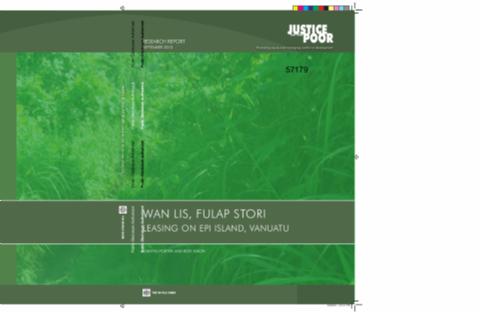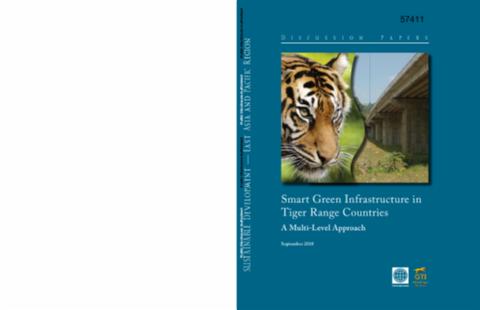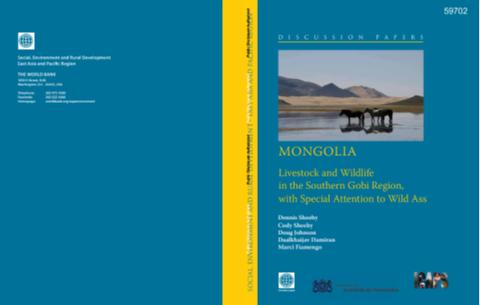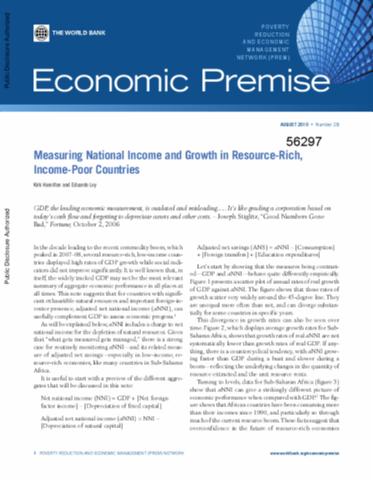The World Bank is a vital source of financial and technical assistance to developing countries around the world. We are not a bank in the ordinary sense but a unique partnership to reduce poverty and support development. The World Bank Group has two ambitious goals: End extreme poverty within a generation and boost shared prosperity.
- To end extreme poverty, the Bank's goal is to decrease the percentage of people living on less than $1.25 a day to no more than 3% by 2030.
- To promote shared prosperity, the goal is to promote income growth of the bottom 40% of the population in each country.
The World Bank Group comprises five institutions managed by their member countries.
The World Bank Group and Land: Working to protect the rights of existing land users and to help secure benefits for smallholder farmers
The World Bank (IBRD and IDA) interacts primarily with governments to increase agricultural productivity, strengthen land tenure policies and improve land governance. More than 90% of the World Bank’s agriculture portfolio focuses on the productivity and access to markets by small holder farmers. Ten percent of our projects focus on the governance of land tenure.
Similarly, investments by the International Finance Corporation (IFC), the World Bank Group’s private sector arm, including those in larger scale enterprises, overwhelmingly support smallholder farmers through improved access to finance, inputs and markets, and as direct suppliers. IFC invests in environmentally and socially sustainable private enterprises in all parts of the value chain (inputs such as irrigation and fertilizers, primary production, processing, transport and storage, traders, and risk management facilities including weather/crop insurance, warehouse financing, etc
For more information, visit the World Bank Group and land and food security (https://www.worldbank.org/en/topic/agriculture/brief/land-and-food-security1
Resources
Displaying 4656 - 4660 of 4907Wan Lis, Fulap Stori
This study of 23 leases over land on the island of Epi is the first of the Jastis Blong Evriwan (JBE) research activities to examine land and natural resource management (L&NRM) and access to justice on particular Vanuatu islands. The research will be repeated on the island of Tanna. To inform the broader context of land leasing in Vanuatu, JBE, in collaboration with the government of Vanuatu, has begun collecting and analyzing government land-leasing data.
Smart Green Infrastructure in Tiger Range Countries
This report presents the results of extensive work of the smart green infrastructure task force commissioned by the World Bank under the Global Tiger Initiative (GTI). The report benefited from advice, ideas, and information about tigers and tiger-friendly infrastructure development from staff at the World Bank, and from several institutions that promote tiger and biodiversity conservation throughout the world.
Mongolia
The purpose of this report is to examine development trends in the Southern Gobi Region (SGR) as they affect livestock and wildlife. It provides an overview of the environment and natural resources of the region, discusses existing relationships and interactions among humans, livestock, large herbivore wildlife, and the natural resources on which they are dependent. It then explores the impact that economic development of the region is likely to have if that development does not consider the needs of the current users.
Measuring National Income and Growth in Resource-Rich, Income-Poor Countries
In the decade leading to the recent commodity boom, which peaked in 2007-08, several resource-rich, low-income countries displayed high rates of gross domestic product (GDP) growth while social indicators did not improve significantly. It is well known that, in itself, the widely tracked GDP may not be the most relevant summary of aggregate economic performance in all places at all times.
Perspectivas para os Pólos de Crescimento em Moçambique
O objectivo deste estudo é assistir o Governo de Moçambique na concepção e implementação de estratégias de pólos de crescimento em sub-regiões seleccionadas, com base em programas correntes e propostos e em experiências internacionais. O estudo centra-se em sub-regiões situadas nos três principais corredores de desenvolvimento: Beira, Maputo e Nacala.










